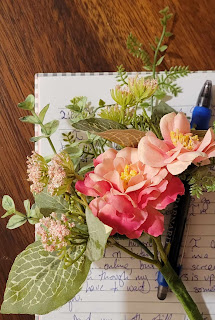 “Nobody will
want to read about your…difference.”
“Nobody will
want to read about your…difference.”
“It’s not possible for kids with two hands to relate to kids
with one.”
“Writing about disability is weird.”
These are a few of the things I’ve been told as a disabled writer who writes about her amputation. For disabled people, the mental weight of discrimination, especially as it relates to our disability status, can be a major obstacle in telling our stories. While nobody should be told that their voice is “weird” or unrelatable or unwanted, the unfortunate reality is that this ableism, or disability discrimination, happens far too often. Learning to take care of your mental health in the face of such discrimination can be challenging. In honor of World Mental Health Day this week (Oct. 10), here are five ways that disabled writers can support their mental health:
1. Disability Community
Having a community of individuals with similar experiences of discrimination and disability can be a great way to find validation and support through mentally challenging days.
2. Take a break!
Especially when writing about topics relating to disability and discrimination, it can be mentally taxing to continue projects for extended periods of time. Every now and then, make time to get away from the keyboard, the notebook, the speech-to-text technology...whatever you use to write.
3. Channel anger into writing
Sometimes, writing about ableism can be cathartic! Try journaling or freewriting about discrimination when it’s all you can think about.
4. Self-care
Take a moment to participate in your favorite self-care activity. From bubble baths to enjoying a favorite dessert, self-care helps you to recover from some of the emotional side effects that stem from living with ableism.
5. Mentorship
Having someone who is also facing ableism and can help you find a path forward is always helpful. With Disability Mentoring Day coming up on Oct. 18, now is a great time to reach out to the mentors in our lives, especially those who help us through those challenging times.
While these are all great ways to address ableism after it happens, one of the best things that can happen to address the mental strain of ableism is by working towards a more inclusive, accessible society. The biggest thing non-disabled allies can do to support disabled colleagues is working with us to ensure our access needs are met. It’s important not only that we can physically access a space via ramps, adaptive furniture, and other physical modifications, but also that we have social access. Valuing disabled voices, ensuring that people with disabilities are included in decision-making processes, and including disabled people in every part of our society is an important way to show allyship and value disabled voices. By valuing disabled people in all areas of life, we can combat the ableism that can be so mentally taxing.
What are some other
ways that you support your mental health as a disabled writer?

No comments:
Post a Comment